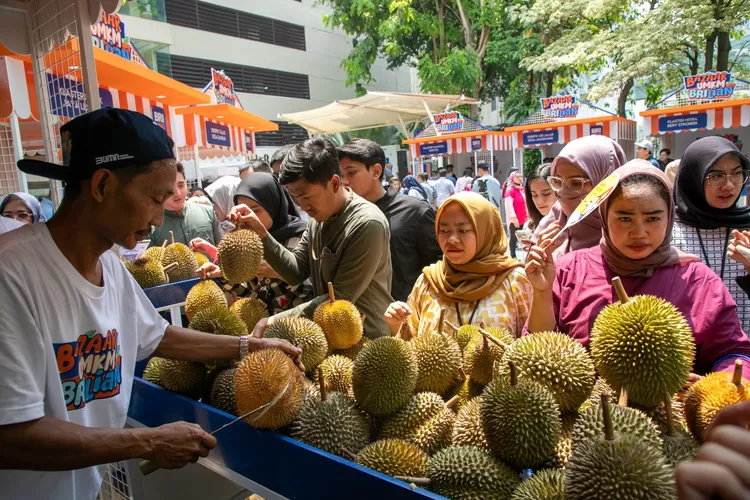In Pekalongan, Central Java, durian farmers are thriving, thanks to significant support from Bank Rakyat Indonesia (BRI) through its community development initiative, Desa BRILian. This program has played a crucial role in helping durian farmers increase their yields, improve their business practices, and access a wider market for their products, particularly in rural communities with untapped potential.
BRI’s Desa BRILian program aims to empower rural areas by developing sustainable agricultural models that can support local economies. In Pekalongan, this initiative is focused on training local durian farmers to adopt improved farming techniques and sustainable business practices. It also supports the expansion of durian production in a manner that aligns with the UN’s Sustainable Development Goals (SDGs), promoting environmental stewardship alongside economic growth.
As part of the program, BRI provided farmers with high-quality durian seedlings and assisted them in learning more advanced horticultural practices. With the help of agricultural experts, farmers learned methods to increase productivity and enhance the quality of their produce. They were also trained on pest management, soil optimization, and harvest timing to maximize yield.
Beyond farming techniques, BRI has worked to ensure that farmers in Pekalongan have access to financial services that help them expand their operations. Farmers can access affordable credit options, allowing them to invest in better equipment and facilities for processing and storing durians. This funding flexibility is crucial for scaling production and improving profitability, especially for smallholder farmers who traditionally have limited access to capital.
Marketing assistance has also been a key component of BRI's support. By connecting farmers to larger markets beyond their local community, BRI has helped boost sales significantly. Farmers can now reach consumers across the region, improving their income and elevating the economic standing of the Pekalongan durian farming community.
This initiative has also emphasized community development through the creation of agricultural clusters. These clusters allow farmers to share resources, knowledge, and best practices, fostering a spirit of collaboration that boosts productivity and encourages innovation. By sharing insights and pooling their resources, durian farmers have been able to tackle common challenges more effectively, from dealing with seasonal weather issues to addressing supply chain gaps.
BRI’s Desa BRILian initiative not only strengthens the local economy but also provides long-term benefits to rural communities. It supports job creation by increasing demand for labor during planting, harvest, and processing seasons, offering employment opportunities for residents who might otherwise migrate to urban areas for work.
In a broader sense, BRI’s efforts in Pekalongan represent a model for rural development that combines financial, educational, and logistical support to drive economic growth. By empowering smallholder farmers and building resilient agricultural networks, the program is an example of how financial institutions can make a meaningful impact on rural economies and contribute to sustainable development. BRI hopes that this initiative will continue to inspire more regions to engage in similar community-focused efforts.
Read More






 Wednesday, 04-02-26
Wednesday, 04-02-26







